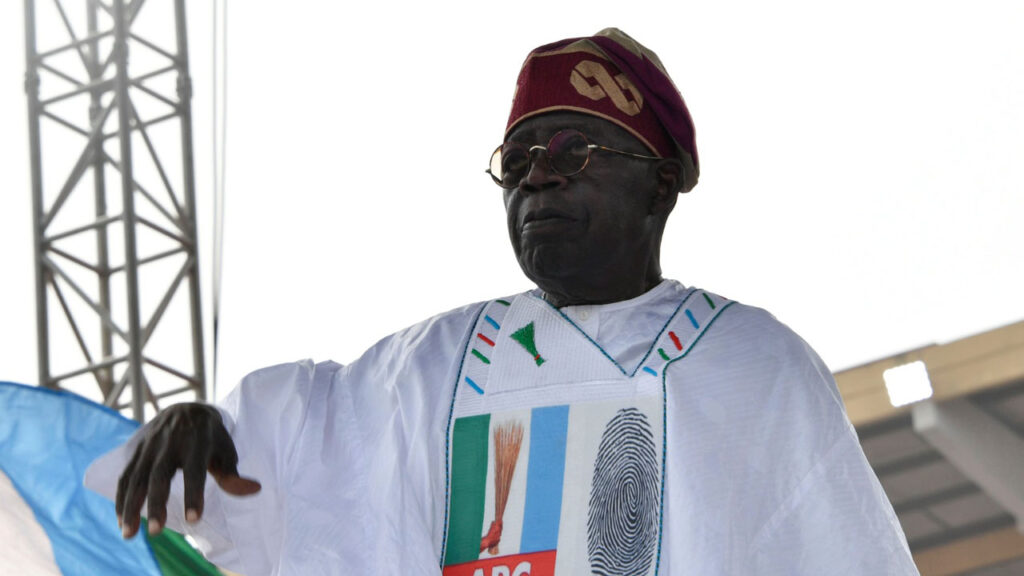
Nigeria’s former Lagos State governor and All Progressives Congress (APC) leader, Bola Tinubu, has emerged victorious in the recently concluded presidential elections, beating his main rival, incumbent President Muhammadu Buhari, by a narrow margin.
The Independent National Electoral Commission (INEC) announced the results on Monday, with Tinubu receiving 51.4% of the total votes cast, while Buhari garnered 47.8%. The other presidential candidates were unable to secure a significant number of votes.
Tinubu’s supporters took to the streets in jubilation, celebrating his victory as a sign of hope for a better Nigeria. In his acceptance speech, Tinubu promised to lead Nigeria toward progress and prosperity, saying, “I am humbled by this mandate and I promise to work tirelessly to make Nigeria a better place for all of us.”
However, not everyone is celebrating. The two main opposition parties, the People’s Democratic Party (PDP) and the Young Progressive Party (YPP), have accused Tinubu and the APC of rigging the elections.
In a joint statement, PDP National Chairman Uche Secondus and YPP National Chairman Kingsley Moghalu alleged that “the elections were marred by irregularities, vote-buying, intimidation, and violence, which were orchestrated by the ruling party to manipulate the results in their favor.”
They further claimed that the INEC collation process was compromised and that the electoral commission failed to conduct a free, fair, and credible election.
The accusations of election rigging have sparked protests in several parts of the country, with some opposition supporters taking to the streets to demand a rerun of the elections. The police have been deployed in some areas to maintain law and order.
The APC, however, has dismissed the allegations, saying that they are baseless and unfounded. In a statement, the party’s National Chairman, Adams Oshiomhole, said, “The PDP and the YPP are sore losers who are unable to accept defeat. The elections were conducted in a transparent and peaceful manner, and the results reflect the will of the people.”
He further urged the opposition to accept the outcome of the elections and work with Tinubu to move Nigeria forward.
International observers have also weighed in on the elections. The African Union (AU) and the Economic Community of West African States (ECOWAS) both issued statements congratulating Tinubu on his victory, but also expressing concern over the allegations of irregularities and calling for an investigation into the matter.
The United States and the European Union also called for transparency and accountability in the electoral process and urged all parties to refrain from violence.
The outcome of Nigeria’s presidential elections is crucial for Africa’s most populous nation, which is facing numerous challenges, including a struggling economy, rising insecurity, and social unrest. Tinubu’s victory, if accepted by all parties, could bring stability and a renewed sense of hope to the country.
However, the accusations of election rigging and the ensuing protests highlight the deep divisions within Nigerian society and the need for meaningful dialogue and reconciliation. It is now up to Tinubu and his administration to address these issues and work towards building a stronger, more inclusive, and democratic Nigeria.

https://asklong.ru